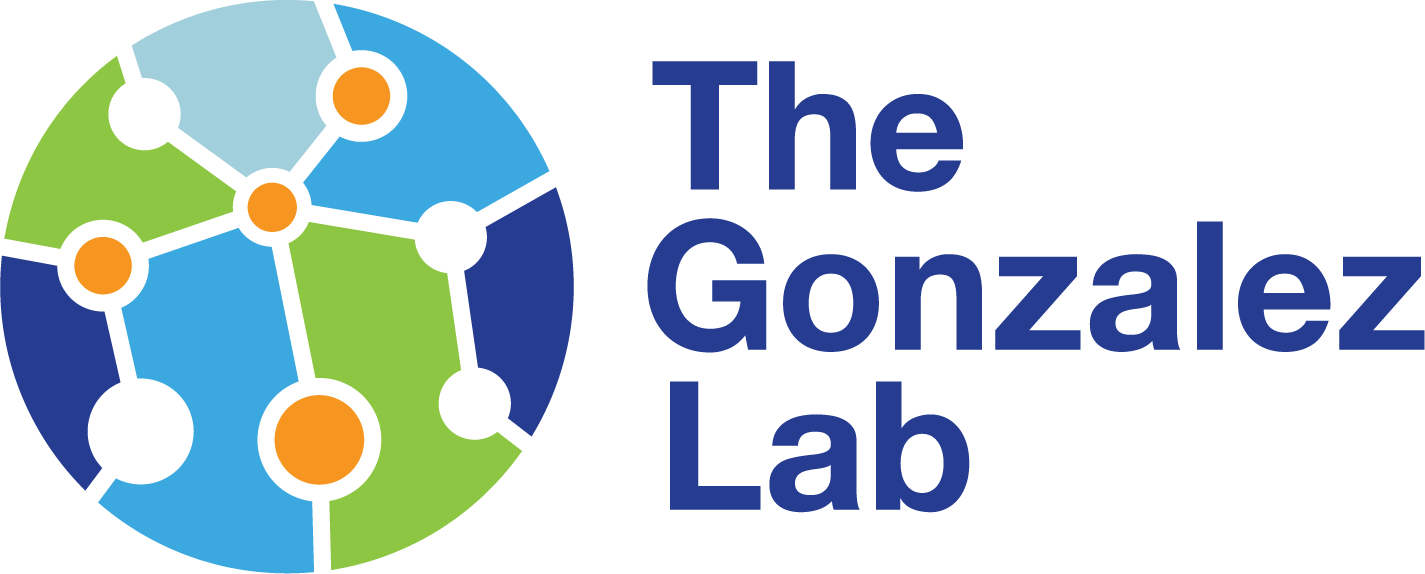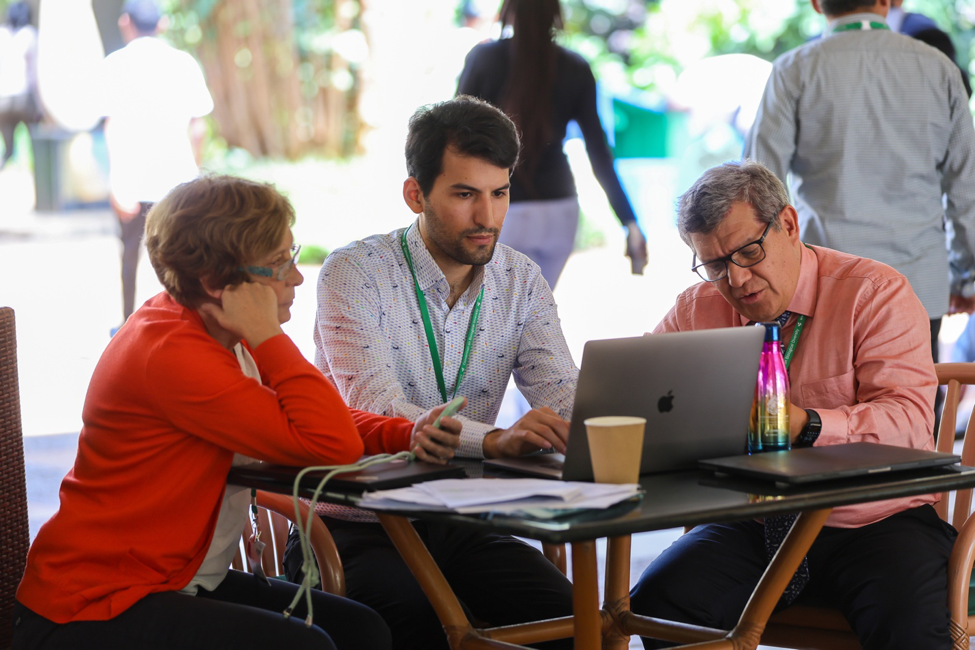When biodiversity science meets international negotiations
Flavio meeting with the co-chairs of the negotiations to come up with a plan to guide the conversation and reach agreement.
by Flavio Affinito
Being part of the Gonzalez Lab comes with many perks, one of my personal favourites is the connection to civil society and policy. Most of our work has direct policy implications and applications, and, through Prof Andy Gonzalez’s co-chair positions at the Group on Earth Observations Biodiversity Observation Network (GEO BON) and the QCBS, we have a direct link with larger organisations that can amplify our work. A recent example is the collaboration between the Gonzalez Lab and the United Nations Convention on Biological Diversity (UN CBD).
Two years ago, I had the chance to attend COP15 in Montreal, where 196 nations signed the most significant global agreement on biodiversity to date: the Kunming-Montreal Global Biodiversity Framework (GBF) of the CBD. This agreement lays out the ambition for protecting biodiversity by 2030 and living in harmony with nature by 2050, but we are to deliver on this ambition remains an open question. To help implement the GBF, nations agreed to a Monitoring Framework that describes how they are expected to report on the progress they are making towards the goals and targets using a set of indicators relevant to the text of the GBF. The Monitoring Framework offers a unique opportunity to hold nations accountable on their commitment and to bring biodiversity science into step with policy to support decision-making and implementation.
The process of designing and operationalising the Monitoring Framework has been ongoing for the past 18 months with an expert group made up of 45 people representing nations and international organisations. This Ad Hoc Technical Expert Group (AHTEG) on indicators was tasked with developing the methodology for all indicators in the Monitoring Framework and identifying any gaps in coverage that remain. One of these experts was as co-chair of GEO BON.
The AHTEG was an opportunity to get involved in doing science that can support the process of the GBF and its implementation. Six months ago, the CBD contacted Prof Gonzalez to hire someone to help the AHTEG deliver on its mandate by producing a glossary and the methodology for the qualitative indicators in the Monitoring Framework, conducting a gap analysis and supporting the international negotiations process on the Monitoring Framework.
Due to my work on monitoring ecosystem services in Canada within the ResNet network, I was offered the chance to work directly with the head of monitoring, review and reporting of the CBD. This was a unique opportunity that, although not directly aligned with my PhD objectives, aligned well with my aspiration to do science that supports decision-making. So, for the past six months, I have been working for the CBD in close collaboration with the AHTEG and produced about 140 pages of guidance for nations needing to implement the Monitoring Framework. In addition to writing reports, I have had the opportunity to travel to two in-person meetings: one in Cambridge to work with the AHTEG and another in Nairobi to support the negotiations on the qualitative indicators.
Doing scientific work in the context of a political process is very different from the kind of science done within the walls of academic institutions. Striking a balance between scientific rigour and on-the-ground capacity of countries with their different levels of political ambition is a continuous challenge. However, the CBD process remains scientifically driven, separating the technical work of experts from the recommendations and text to be negotiated. Nevertheless, the text of the indicators, including those I worked on, is open to negotiation. Therefore, my work was split into two parts: the technical challenge of designing methodology for qualitative indicators and analysing the Monitoring Framework, done in collaboration with experts, and the political challenge of negotiating the language of these indicators, done in collaboration with negotiators.
My first challenge was to understand the inner workings and processes of the CBD and to familiarise myself with the international processes that have been developed for decades to reach global agreements. Being in proximity with the secretariat of the CBD in downtown Montreal, I was able to work at their head office and learn from their teams. From there, I worked mostly online with experts all over the world, synthesising their knowledge and bringing it all together to produce a scientifically sound methodology for the qualitative indicators of the GBF. Collaboration across time zones and continents is itself a challenge and some meetings took place from 2-5am with technical presentations at 4am! Once this technical work was done, I travelled to Cambridge to present it to the AHTEG and work in-person with them to complete any outstanding elements. This one-week workshop was a high energy collaborative process that resulted in a long list of technical documents to guide countries in their implementation of the Monitoring Framework. After the workshop, all the results of the AHTEG’s work were compiled into reports and made available for countries to review ahead of the pre-COP negotiations, called SBSTTA 26.
SBSTTA 26 took place in Nairobi, where, for an entire week, late night plenary meetings were held to discuss the details of every sentence in the qualitative indicators and overall recommendations of the AHTEG. In this process, my role was to advise the chairs of the meetings on how to guide the conversation and provide technical advice on the comments made by countries. Here, social skills became much more important than technical skills, and a big part of the work happened between meetings and in conversations with country representatives. These negotiations can be very frustrating when considering some reactions and the amount of work that went into their preparation, but it is important to remember than the CBD proceeds via unanimous agreement where it is essential to give everyone a voice in the process, especially considering the diverse needs and backgrounds of parties.
Even though the negotiations are far from over, my work concluded in Nairobi, so now it’s time to dive back into my PhD. The experience with the CBD was insightful, challenging and rewarding. It has opened prospects and career avenues that I did not have before and exposed me to the international side of the science-policy interface. One of the most valuable parts of this experience was the opportunity to meet so many experts and policymakers all at once which allowed me to start building a global network of contacts. I remain convinced of the need for science to support society and help respond to the crises we are facing, but with a new understanding of the political and technical realities faced by many countries. It will take far more to deliver on the GBF, but the opportunity to be part of its design is one I will cherish and continue to work towards as I complete my PhD in the Gonzalez Lab.

